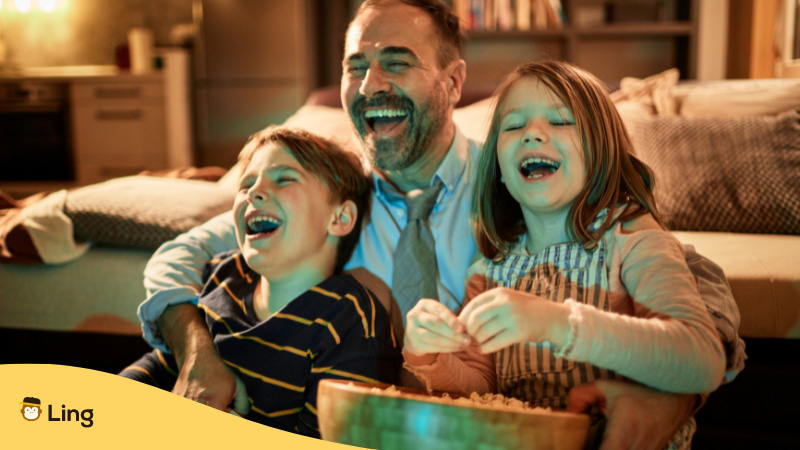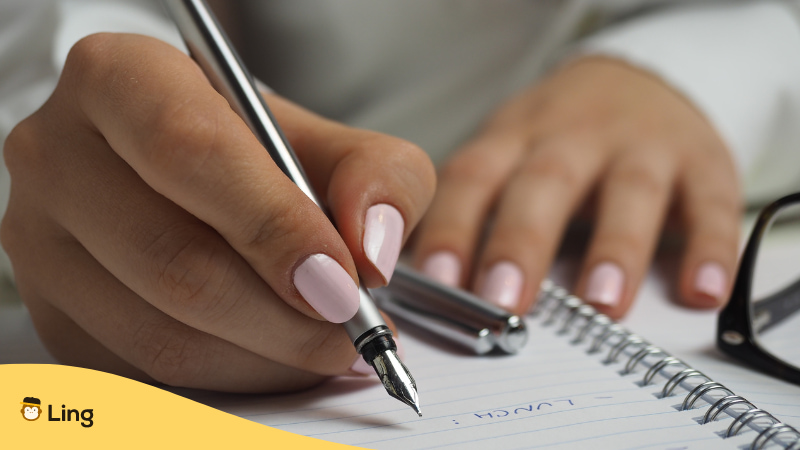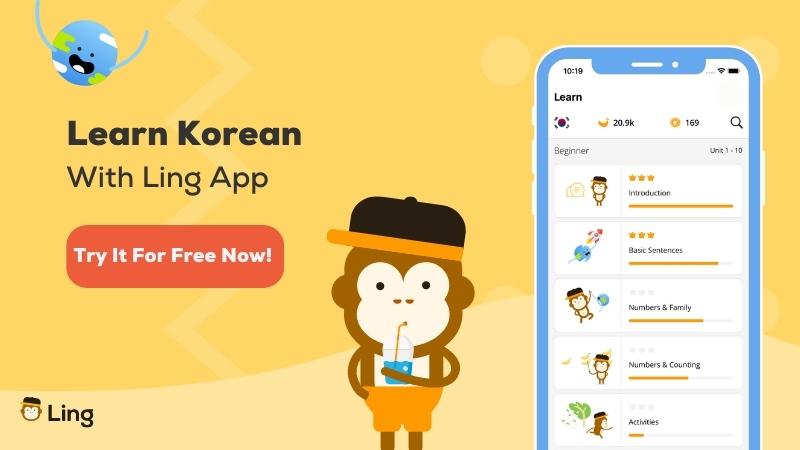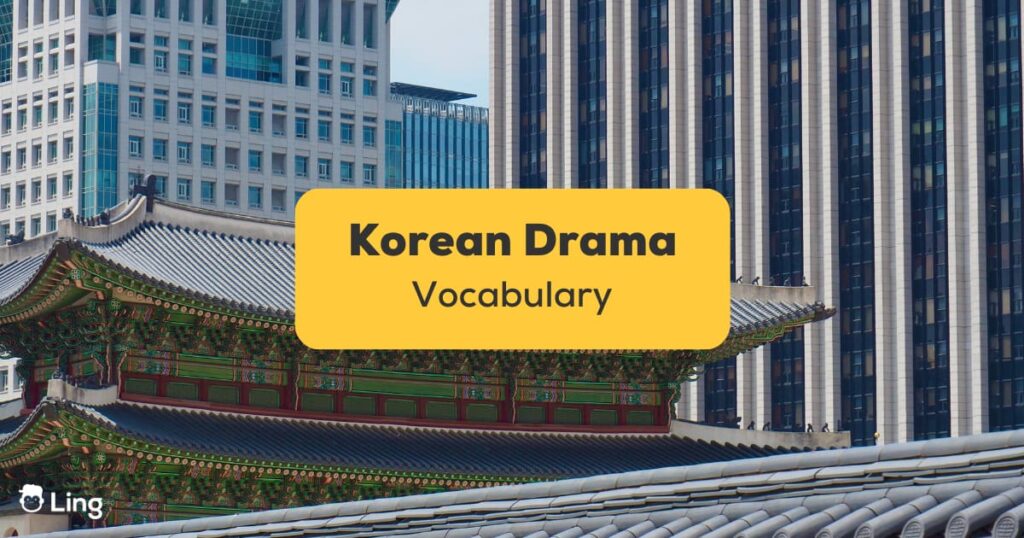A big fan of Korean 드라마 (pronounced as deurama)? Recognizing these simple words can help you connect better with your Korean friends and even other fans. Let’s learn more about this today! In today’s post, we will walk you through the common Korean drama vocabulary you can use to sound like a total native!
The everyday life of a K-drama fan is not complete without watching a single episode of their favorite K-dramas. One episode isn’t enough to satisfy your day because you’ll surely end up binge-watching or finishing the whole series in just two to three days.
Aside from the superb storylines, plot twists, and stunning actors and actresses, people love K-dramas because they are picking up Korean words and phrases typically used in K-dramas. That’s why in this blog, we will be learning Korean drama vocabulary. Every Korean word or phrase you’ll learn has Romanization and English Translation. If you want to talk like native speakers and learn these basic words, keep reading.
K-Drama In Korean Culture: A Brief History
South Korea is indeed known for lots of things like K-pop culture, Korean food, skincare, makeup products, mobile phones, and more. But, it is undeniable that this country is rich in different Korean dramas and movies that have been known worldwide.
The success of Korean dramas such as Crash Landing On You, Squid Game, Boys Over Flowers, and other K-dramas put South Korea in a high place in the film industry. Koreans are now known worldwide. But, have you ever wondered where it all started?
Let’s travel back to the 1960s. This was when South Korean TV networks started broadcasting and airing dramas regularly. During this period, owning a TV in South Korea was still a luxury. Not everyone can afford to have them in their households.
What makes it even harder is that the military administration regulated TV content and shows during that time. The first TV series aired in South Korea was “Backstreet of Seoul” in 1962, which is more of a lecture about issues of urban life not for entertainment. There’s another series that aired from 1964 to 1985, an anti-communism drive of the government.
How Did Korean Drama And Movies Become Popular?
Korean filmmakers and producers are investing efforts to level up the TV programs they produce. During the 1970s, producers began to promote and produce more dramas. After the prohibition on obtaining revenue from ads was abolished in 1969. Many households now own TVs, and the shows already focus on the everyday life of South Koreans. Some great examples are “Assi” and “Yeoro.” These were about characters who have to deal with adversity in their lives against the backdrop of Japanese colonial control and the Korean War, which is very relevant to the country’s history and many different situations.
In 1971 another drama was aired that lasted until 1989. This drama is called “Susa Banjang” (Chief Detective). It reflected changes in Korean society, like crimes involving poverty during its early days. But by the 1980s, it had expanded to include serious and violent criminals such as drug dealers, robbers, kidnappers, and murderers, reflecting the social issues of the time. Dramas are now becoming relevant and more relatable for people.
Moving on to the 1980s, K-dramas grew to have more varieties. The TV dramas during this period already talked about the lives and love stories of the younger generations. The main purpose of this bold move is to attract more viewers. Japanese dramas influenced these kinds of storylines. During this period, a great example of drama is the “Love Ambition,” which aired in 1987.
The Korean drama industry had slowly leveled up its game. With the introduction of more TV networks and the liberalization of government controls and censorship during the 1990s, TV networks’ competition became more severe, resulting in more money and effort being invested in dramas.
This is also when the first Korean blockbuster, “Eyes of Dawn,” was aired from 1991 to 1992. The drama represented Korean history from colonial times to the Korean War (1950-1953) and included firsts such as pre-production and filming in foreign places. This drama cost 200 million won per episode—no wonder why Korean historical dramas are as superb as ever.

Popularity Of Korean Dramas In Other Countries
It was also during the 1990s when trendy K-dramas were very in-demand. Young characters were introduced, a realistic description of life was depicted, and catchy OSTs were used to become top charters. The TV networks were compelled to link the popularity of the dramas to goods sales due to this.
The 2000s is the era of K-dramas that are more popular with us right now. During this period, the online world, like social networking sites and film streaming sites, played a vital role in the growth of K-dramas. It reached more audiences not just in Korea but also from different parts of the world. The storylines and topics also became varied.
Filming locations were also not just done in Korea. They also managed to go to different countries like Paris, Greece, Budapest, Shanghai, etc. Characters wore trendy, fashionable clothes and designer pieces, and the actions were leveled up. Today, Korean dramas continue to become a global phenomenon. The quality of these dramas has gone too far from where they started. Now, you can’t imagine the entertainment industry without Korean dramas and movies.
Top Korean Drama Vocabulary
After learning a bit about Korean drama, let us learn about Korean drama vocabulary. These are the most common words you usually hear when watching K-dramas. In learning these Korean drama vocabularies, you will be provided with romanizations and English translations to help you understand.
1. Unni (언니) /Oppa (오빠) /Noona (누나) /Hyung (형) / / /
English Translation: Older Female Or Male
Who would forget when Secretary Kim called Vice President Lee Young-Joon’s “Oppa”? The first Korean drama vocabulary to learn is the words used to address people. Using honorifics and politely addressing someone is really important in Korean culture. You will hear Koreans speaking differently based on the people they talk to. This is done to sound polite. They have different ways to address someone older and younger than them.
- Unni (언니): when a female calls an older female
- Oppa (오빠): when a female calls an older male
- Noona (누나): when a male calls an older female
- Hyung (형): when a male calls an older male
2. Joh-ahae (좋아해)
English Translation: I Like You.
One of the most exciting and breathtaking scenes in romantic K-dramas is when the characters admit they like each other. That’s why the Korean drama vocabulary “I like you” is one of the first Korean words and phrases you’ll easily pick up. Remember the great “confession” of Jung Hwan to Deok Sun in Reply 1988? Pretty much like that.

3. Saranghae (사랑해)
English Translation: I love you.
One of the things that K-drama fans love about romantic K-dramas is that they develop the characters’ love stories before admitting their true feelings to each other. That’s why the expression “I love you” is one of the most important Korean drama vocabulary to learn. You might not always hear it, but when you do, it will be worth it, like when Eun Tak told Kim Shin, “I love you.”
4. Bogoshipo (보고싶어)
English Translation: I Miss You.
Do you remember when Se-ri and Captain Ri reunited in Switzerland after not being together for years? The line “I’ve missed you” totally hit the viewers hard. This Korean drama vocabulary doesn’t need much learning because you’ll pick it out when you’re an avid fan.
5. Mianhae (미안해)
English Translation: I Am Sorry.
Mianhae (미안해) is a Korean drama vocabulary that you’ll easily learn unconsciously. One of the most memorable scenes where this line was used is when Gu Jun-pyo saved Geum Jan-di from the bullies hurting her because of the false accusation that he’s sleeping with other guys. Jun-Pyo apologizes for not trusting and believing her.
6. Hengbokhae (행복해)
English Translation: I’m happy
Remember how happy Mi-ho was when Dae-Wong told her that he also liked her too? This is the perfect scene where the Korean drama vocabulary “Hengbokhae (행복해)’ is used. You’ll be hearing this a lot in Korean dramas, so if you encounter this, you know what it means.
7. Gajima (가지마)
English Translation: Don’t Go
One of the most heartbreaking Korean dramas is when Eun Tak removed the sword from Kim Shin’s chest, and he vanished? This scene shows the Korean drama vocabulary “Gajima (가지마)” is perfect. It is when you ask someone not to go or leave you.
8. Jalja (잘자)
English Translation: Sleep Well
This is a Korean drama vocabulary that you’ll often hear when characters say goodbye after they hang out when talking on the phone or texting. This may also mean “Good night,” and it’s perfect to say to a person you love before going to sleep.
9. Yaksohkhae (약속해)
English Translation: Promise Me
One of the most memorable scenes where this Korean drama vocabulary was used is in the Scarlet Heart Ryeo. Remember when they are doing a pinky swear while saying this? Such a cutie!
10. Gwenchana? (괜찮아? )
English Translation: Are You Okay?
This Korean drama vocabulary is one of the most popular not only because it is used often but also because the Korean drama Welcome Wikiki made this popular. This can be used to ask someone if they are okay or say that you’re okay.
11. Wae Geu Rae? (왜그래?)
English Translation: What’s Wrong?
In Korean dramas, when one person is looking sad, crying, drinking alone, or taking a deep sigh, you’ll immediately ask, “Wae geu rae? (왜그래),” which translates to “What’s wrong?”. This is also an important Korean drama vocabulary to learn because a character reveals their problem.
12. Baegopah? (배고파?)
English Translation: Are You Hungry?
In Korean dramas, one of the most common first meeting encounters ends up having a meal or drinks together. This is why “Baegopah? (배고파?)” is a very important Korean drama vocabulary to know.
13. Ireoke (이렇게?)
English Translation: Like This?
This Korean drama vocabulary can also mean “What should I do?”. It is a phrase that, depending on the context, can be used to ask someone how to do something or to advise someone to do something in a certain manner.
14. Eotteoke (어떻게?)
English Translation: How?
This is also indeed a famous Korean drama vocabulary. You’ll often hear this when Koreans don’t know how to do things or when they are expressing empathy to others.
15. Jugeullae (죽을래?)
English Translation: Do You Want To Die?
When you hear this word, you probably can’t think of anybody else than Jang Man-Wol of Hotel Del Luna. This is a Korean drama vocabulary that they use when they are annoyed.
16. Geurae (그래?) / Jinjja (진짜?) / Jeongmal (정말?) / /
English Translation: Really?
This is another common Korean drama vocabulary. This is used when they can’t believe something is happening or are surprised.
17. Ya! (야!)
English Translation: Hey!
Do you remember the scene in Reply 1988 when Sun-woo came rushing to Taek to say that he and Bo-ra are dating again? While he’s excited about telling the news, he doesn’t notice that Deok-sun (Bo-ra’s sister) is there. Then, to her surprise, a loud “Ya! (야!)” was heard from Deok-sun. This Korean drama vocabulary is impossible to miss if you’re an OG K-drama fan.
18. Hwaiting (화이팅)
English Translation: Fighting!
If you have watched “Fight For My Way,” you’ll never forget how Park Seo-Joon said this Korean drama vocabulary. It is a word used as a word of encouragement to cheer someone up. It’s like saying, “Do your best!” and “Good luck!”.
19. Sesange (세상에!?)
English Translation: What In The World!?
Another Korean drama vocabulary used to express shock or disbelief. Every K-drama fan is familiar with this because it is mostly used for evil characters doing bad things.
20. Je-bal (제발)
English Translation: Please
This is also one of the common drama words used in a conversation. It simply means “Please,” but you’ll often hear this a lot because it is used in many different situations.
21. Andwae (안돼)
English Translation: It Can’t Be (It Isn’t Allowed)
Another iconic scene from “Crash Landing On You” is when Se-ri ran towards Captain Ri after being arrested and put in handcuffs. She kept saying that she couldn’t let it happen because of her. Indeed, this is one memorable Korean drama vocabulary, especially for CLOY fans.
22. Samgak-kwangae (삼각관계)
English Translation: Love Triangle
Han Ji-pJung Hwan, Deok-sun, and Choi Taek from Reply 1988. Seo Dal-Mi Nam Do-San Han Ji-Pyeong from Start-up. Sa Hye-Jun An Jeong-Ha Won Hae-Hyo from Record of Youth. Need I say more about these characters? Yes! They are just a few of the famous love triangles or Samgak-kwangae (삼각관계) in Korean dramas. There are lots of K-dramas with this kind of storyline that’s why Samgak-kwangae (삼각관계) is indeed a must-learn Korean drama vocabulary.
23. Jjaksarang (짝사랑)
English Translation: Crush Or One-Sided Love
One-sided love or crush is indeed one of the most heartbreaking things in the world, especially in the Korean drama world, just like when Jo Yi-Seo liked Park Sae‑ro‑yi even though she knew that Sae-ro-yi is in love with his first love. Korean dramas successfully turn friends into lovers, but some remain one-sided love or crush Jjaksarang (짝사랑).
24. Kyulhonhaejo (결혼해줘)
English Translation: Will You Marry Me?
Goblin & Eun-Tak (Goblin), Dal-Mi & Do-San (Start-Up), Da-Jung & Dae-Youn (18 Again), and Mi-So & Young-Joon (What’s Wrong With Secretary Kim?). These are a few of the most unforgettable Korean drama weddings. Try to recall how you felt when the man asked “결혼해줘 (Kyulhonhaejo)” during the scenes. I bet it’s over the top. That’s why this is an important Korean drama vocabulary to discover.
25. Haeuhjija (헤어지자)
English Translation: Let’s Break Up.
Aside from the sweet and romantic scenes, Korean dramas are also full of unfortunate and heartbreaking scenes like breakups. If you know this Korean drama vocabulary, you’ll probably cry your hearts out when you hear your favorite couple saying this. Some of the most unforgettable Korean drama breakups are Jeong-Ha And Hye-Jun (Record Of Youth), Moon-Young and Gang-Tae (It’s Okay To Not Be Okay), and Dal-mi (Bae Suzy), and Do-san (Kim Kang-hoon). If you reach this episode, bring many issues with you.

More Vocabulary About K-Dramas
Other Korean Words And Phrases Related To K-Drama
Learn The Korean Language Now!

Imagine watching K-dramas without subtitles. How amazing is that? Watching K-drama is not just for entertainment purposes only. Some people are learning Korean by watching K-dramas and listening to music. But, if you want to take your Korean language learning to a higher level, download Ling app by for free.
Learning with Ling app will give you a fun and engaging language-learning experience that will be helpful if you want to speak Korean like the natives. You can choose from a variety of topics you want and practice it anytime and anywhere. Ling app has all these amazing features to develop your language skills to help you learn a new language. Download the app now on the Play Store or App Store and ignite the language enthusiast in you!


















One Response
I have already memorized many of these in the three years I’ve been devouring KDramas. I am, however, really surprised at how some of them are spelled, as they don’t look at all as I expected! Nice to see the spellings of all these words. Nice article.